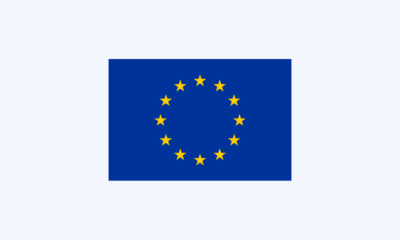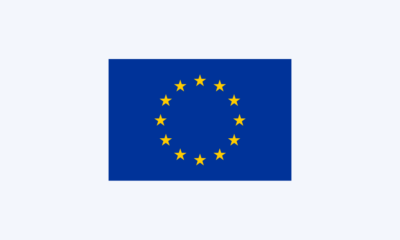Politics
Belarus, EU restricts 25 individuals and 7 more entities related to repressive regime of Lukashenka

Belarus: EU lists further 25 individuals and 7 entities in the context of the so-called presidential election and for supporting the repressive regime of Lukashenka
The Council today decided to impose restrictive measures on an additional 25 individuals and 7 entities responsible of undermining democracy and the rule of law in Belarus, as well as contributing to the ongoing internal repression, human rights abuses as well as military cooperation with Russia in support of the war against Ukraine.
The EU has listed the Central Election Commission (CEC) its deputy Chair and secretary, as well as its members. The CEC organised the 2025 presidential elections which were neither free nor fair, conducted in a climate of repression and human rights violations, and in breach of Belarus’ OSCE commitments. Aleh Ramanau, the Chair of the largest political party holding the majority of seats in the Belarusian parliament, was also listed.
Today’s listings also include nine judges who have issued politically motivated sentences, including against citizens who protested against the Lukashenka regime, or who voiced dissent, thereby participating in the repression of civil society and democratic opposition.
Furthermore, the EU has imposed restrictive measures on notable members of the President Property Management Directorate, a Belarusian government body subordinated directly to Lukashenka, generating revenue for the regime and profiting from it.
The EU also listed other companies and businessmen supporting the Lukashenka regime and benefiting from it, such as Ridotto LLC – specialised in online gambling – and its majority shareholder Dzmitry Shvedka; Belorusskiye Loterei – running the lottery business in Belarus – and its director Mikalai Dzenisenka. Two companies active in the military-industrial complex in Belarus and their top managers were also designated: OJSC Planar and its CEO Sergey Avakov; and Precise Electro-Mechanics Plant and its director Yuri Tchorny, as well as JSC Integral.
Lastly, restrictive measures were imposed on Tsybulka-Bel LLC, an agro-company that has coordinated with Belarusian authorities the deployment of inmates as forced labourers in direct violation of human rights.
Altogether, EU restrictive measures against Belarus now apply to 310 individuals and 46 entities. Those designated today are subject to an asset freeze and EU citizens and companies are forbidden from making funds available to them. Natural persons are additionally subject to a travel ban, which prevents them from entering or transiting through EU territories.
The EU stands with the people of Belarus and unwaveringly supports the Belarusian people’s quest for a free, democratic, sovereign and independent Belarus as part of a peaceful Europe.
The relevant legal acts have been published in the Official Journal of the European Union.
Since August 2020, the EU has imposed numerous successive rounds of individual and sectoral sanctions, against those responsible for internal repression and human rights violations in Belarus, and in the context of Belarus’ involvement in Russia’s war against Ukraine. With these measures, the EU is signalling to the political and economic actors responsible that their actions and support for the regime and to Russia come at a cost.
In its conclusions dated 19 February 2024, the Council expressed its deep concern about the deteriorating human rights situation in Belarus, and strongly condemned the continuing persecution and intimidation campaigns against all segments of Belarusian society by the Belarusian regime. It deplored that political prisoners remain incarcerated in appalling conditions, exposed to torture and ill-treatment, without access to essential health services, and that many of these prisoners have been kept for long periods of time without contact with their lawyers and relatives. The EU urges the Belarusian authorities to immediately and unconditionally release all political prisoners, and abolish the death penalty.
Politics
EIB to provide $110 million to finance energy efficiency and renewable energy investments
- $110 million loan to Banco del Estado de Chile to finance energy efficiency and renewable energy investments for small and medium businesses and industries among others, including the value chain companies for critical raw materials in the country.
Today the European Investment Bank (EIB) and Banco del Estado de Chile signed in Santiago de Chile a $110 million loan to finance energy efficiency and renewable energy investments for small and medium businesses and industries among others, including the value chain companies for critical raw materials in the country. The operation is in line with the EU Global Gateway Investment Agenda in Chile and fosters partnerships to develop sustainable local value chains in the critical raw materials segment.
The loan was signed by Daniel Hojman, President of Banco del Estado de Chile, and by Thouraya Triki, EIB Director of the International Partners Department, in the presence of the European Commissioner for International Partnership Jozef Sikela.
The project, 100% climate action, supports Chile’s transition to a decarbonised, environmentally friendly, and inclusive economy, reinforcing the country’s efforts to enhance renewable energy and energy efficiency measures. Mining companies or companies providing services to the critical raw materials sector, and implementing energy efficiency and renewable energy sub-projects, can also be targeted as final beneficiaries, thus supporting the decarbonisation of the critical raw materials supply chain, which is needed to ensure a clean energy transition in the country.
“This $110 million financing agreement between the European Investment Bank and Banco del Estado de Chile is a relevant contribution towards a cleaner and more efficient energy future. We are investing in renewable energy and energy efficiency, especially for small and medium businesses, thereby strengthening the decarbonisation of the Chilean economy. This initiative reflects our shared commitment to climate action. Through the Global Gateway Investment Agenda, Chile and the European Union are strengthening our collaboration, ensuring that economic growth and environmental protection go hand in hand,” said Jozef Sikela, European Commissioner for International Partnership.
“This agreement between BancoEstado and the European Investment Bank strengthens the cooperation between our two financial institutions, with the aim of accelerating the adoption of green energy. This complements our previous partnership, which sought to improve the financial access conditions for housing with enhanced energy efficiency standards. Sustainability is an integral part of our identity as a public bank, and green financing is one of our strategic pillars, in line with supporting Chile’s transition towards an economy committed to climate action and environmental conservation,” said Daniel Hojman, President of Banco del Estado de Chile.
“The $110 million EIB financing in energy efficiency and renewable energy generation supports Chile’s green transition and the EU’s Global Gateway Investment Agenda in Chile while strengthening energy security in the years ahead. This operation contributes significantly to decarbonise the energy supply in the country and unlocks energy efficiency potential in small and medium businesses and industry, including in the critical raw materials sector. This cooperation with Banco del Estado de Chile builds on the EIB’s global climate engagement and our support for climate action in Chile over the last three decades,” said Ioannis Tsakiris, Vice-President of the European Investment Bank.
The operation is part of the European Union’s Global Gateway Investment Agenda (GGIA) supporting projects that improve global and regional connectivity in the digital, climate, transport, health, energy and education sectors. The Global Gateway is the European Union’s contribution to narrowing the global investment gap worldwide. Between 2021 and 2027, the European Union expects to mobilise up to €300 billion of investments for sustainable and high-quality projects, taking into account the needs of partner countries and ensuring lasting benefits for local communities.
Background information
About EIB Global
The European Investment Bank (ElB) is the long-term lending institution of the European Union, owned by the Member States. It finances investments that pursue EU policy objectives.
EIB Global is the EIB Group’s specialised arm devoted to increasing the impact of international partnerships and development finance, and a key partner of Global Gateway. It aims to support €100 billion of investment by the end of 2027 – around one-third of the overall target of this EU initiative. Within Team Europe, EIB Global fosters strong, focused partnerships alongside fellow development finance institutions and civil society. EIB Global brings the EIB Group closer to people, companies and institutions through its offices across the world. Photos of EIB headquarters for media use are available here.
High-quality, up-to-date photos of our headquarters for media use are available here.
About EIB Global in Chile
The EIB is the largest multilateral public bank in the world. In 2024 it financed around €8.4 billion in investments outside the European Union via EIB Global, the arm of the EIB created in 2022 for activities beyond Europe. Since the EIB started working in Chile in 1994, it has provided over €942 million to finance investments on favourable conditions — in terms of both maturity and interest rates — with the aim of improving Chileans’ quality of life.
About EIB Global in Latin America
EIB Global has been providing economic support for projects in Latin America since 2022, facilitating long-term investment with favourable conditions and offering the technical support needed to ensure that these projects deliver positive social, economic and environmental results. Since the EIB began operating in Latin America in 1993, it has provided total financing of around €14.9 billion to support more than 170 projects in 15 countries in the region.
About the Global Gateway Investment Agenda
EIB Global is a key partner in the implementation of the European Union’s Global Gateway Investment Agenda (GGIA), supporting sound projects that improve global and regional connectivity in the digital, climate, transport, health, energy and education sectors. Investing in connectivity is at the very heart of what EIB Global does, building on the Bank’s 65 years of experience in this domain. Alongside our partners, fellow EU institutions and Member States, we aim to support investment of €100 billion (around one-third of the overall budget of the initiative) by the end of 2027, including in Chile and Latin America.
Politics
EU’s cohesion policy: Council sets out clear guidelines for the future

he Council today approved conclusions setting out its position on key aspects for cohesion and the future of EU’s cohesion policy. The conclusions will serve as a basis for discussions in the coming months and for the Commission’s work on the legislative framework for cohesion policy after 2027.
I am delighted that today we approved these conclusions setting the priorities for our work in the coming months. Having as our guiding principle that EU’s cohesion policy and competitiveness are closely interlinked, I am convinced that we will manage to agree on an efficient and future-proof cohesion policy for the next financial perspective and respond effectively to Europe’s emerging priorities and needs.
Katarzyna Pełczyńska-Nałęcz, Minister of Funding and Regional Policy of Poland
The conclusions recall that the objective of economic, social and territorial cohesion is at the heart of the European project and that EU policies and actions should contribute to the achievement of this objective through considering their territorial dimension and their coordination, and with the active involvement of the national, regional and local authorities and stakeholders, as relevant. The Council also highlights the importance of promoting clear complementarities and synergies among EU policies and of avoiding overlaps among different instruments.
The Council refers to the Letta report, which highlights that an effective cohesion policy, implemented in a balanced way across the EU, is a key condition for the success of the single market. In this regard, the text reaffirms that competitiveness and cohesion are interconnected and emphasises the role of both enhancing competitiveness of the EU as a whole and improving cohesion across countries and regions, thereby contributing to the achievement of EU strategic priorities and addressing EU challenges in a mutually reinforcing manner.
The conclusions recall the foundations and key principles of cohesion policy, such as shared management, multi-level governance, partnership, as well as people- and place-based approach, being applied alongside the principles of proportionality and subsidiarity. In this context, cohesion policy should continue to play a key role in reducing regional disparities in Europe, helping less developed regions to catch up with the more developed ones, with a view to upward convergence of the EU.
In terms of governance, shared management between the Commission, member states, and regional and local authorities must remain the delivery method of cohesion policy. The Council recalls the importance of multi-level governance that enables effective interventions at the most appropriate territorial levels in each member state, at the same time strengthening the sense of shared responsibility. Together with shared management and dialogue with partners, both during the programming and implementation phases, multi-level governance facilitates the achievement of EU policy goals and empowers the member states, regional and local authorities.
Finally, the Council recalls that cohesion policy is a long-term investment policy and that improving its efficiency and effectiveness can be achieved by focusing on results. To this end, the Commission is invited to make cohesion policy more result-oriented, in particular to use an evidence-based approach in designing the framework of the future policy. The Council also calls the Commission to further develop and simplify the well-established systems of monitoring and evaluation, in order to assess how investments and reforms deliver strategic goals, to strengthen tools aimed at examining the potential and real impacts of policy interventions, as well as to further embed territorial impact assessments in policy preparation and evaluation.
Politics
EU supports the EU wine sector to cope with market uncertainties

Today, the European Commission is proposing a range of measures to ensure Europe’s wine sector remains competitive, resilient, and a vital economic force in the decades to come.
The sector is facing several challenges like shifting consumer trends, climate change and market uncertainties.
The Commission’s proposal introduces targeted measures to help the sector manage production potential, adapt to evolving consumer preferences, and unlock new market opportunities. These measures will also help maintain the vitality of many rural areas which depend on jobs in the wine industry and preserve the EU wine sector’s social relevance.
Key changes to the wine policy framework
- Surplus prevention: Member States will be empowered to take action, such as grubbing-up (removing unwanted or excess vines) and green harvesting (removing unripe grapes before harvest), to prevent surplus production, help stabilise the market and protect producers from financial strain.
- Planting flexibility: Producers will be allowed additional flexibility on the replanting authorisations scheme. This will help them taking their investment decision in the current changing context. Member States will also be allowed to better calibrate the planting authorisations to their national and regional needs.
- Climate support: The sector will receive stronger support to become more resilient to climate change. Member States can increase the maximum Union financial assistance up to 80% of the eligible investment costs for investments aimed at climate change mitigation and adaptation.
- Clear marketing rules: Marketing of innovative products will be easier, with clearer rules and common product denominations for lower alcohol wine products across the single market.
- Harmonised labelling: Operators will benefit from a more harmonised approach to wine labelling, reducing costs and simplifying trade across EU borders while providing consumers with easy access to information.
- Boosted wine tourism: Producer groups managing wine protected under geographical indications will receive assistance to develop wine-related tourism, helping to boost economic development in rural areas.
- Extended promotion: The duration of EU-funded promotional campaigns for market consolidation in third countries will be extended from 3 to 5 years to ensure better promotion of European wines.
Background
The EU wine sector is a cornerstone of Europe’s cultural and economic fabric. Representing 60% of global wine production and 60% of the world’s exported wine value, the sector plays a vital role in rural economies and is closely linked to European traditions, gastronomy, and tourism. While the EU wine policy has been highly successful in protecting the qualities and promoting EU wines, ongoing demographic shifts, changing consumption patterns, climate challenges and market uncertainties are straining the sector.
To address these challenges, the High-Level Group on Wine Policy (HLG) was established to discuss the sector’s needs and propose solutions together with the sector and Member States. At the European Parliament’s Committee on Agriculture and Rural Development meeting on 11 February 2025, Commissioner Christophe Hansen announced the upcoming proposal on wine, designed to translate the HLG’s recommendations into concrete legislative action. Today’s proposal marks the fulfilment of that commitment.
Once adopted, the new framework will allow for swift action, ensuring more opportunities for producers, while securing the future of a competitive wine sector across the Union.
-

 Politics5 days ago
Politics5 days agoCouncil and Parliament strike provisional agreement on new rules for driving licences
-

 EU & the World7 days ago
EU & the World7 days agoGeorge Foreman’s Wife: About Mary Joan Martelly & His Ex-Wives
-

 EU & the World5 days ago
EU & the World5 days agoVanessa Trump & Donald Trump Jr.’s Kids: Meet Their Children
-

 EU & the World7 days ago
EU & the World7 days ago‘Wicked Part 2’: Title, Release Date, Cast & More Details
-

 EU & the World7 days ago
EU & the World7 days ago‘The Hunger Games: Sunrise on the Reaping’: Release Date, Cast & More on Haymitch’s Prequel
-

 EU & the World6 days ago
EU & the World6 days agoVanessa Trump: 5 Facts About Donald Trump Jr.’s Ex-Wife
-

 EU & the World5 days ago
EU & the World5 days agoElin Nordegren’s Net Worth: How Much Money Tiger Woods’ Ex-Wife Has
-

 Politics5 days ago
Politics5 days agoIsrael: remarks by High Representative/Vice-President Kaja Kallas at the joint press conference with Minister for Foreign Affairs Gideon Sa’ar







